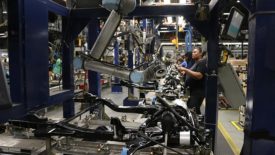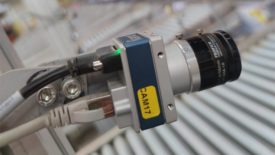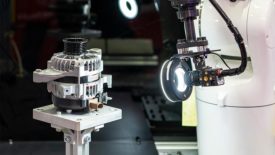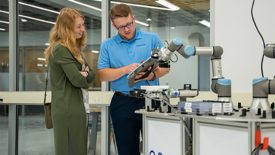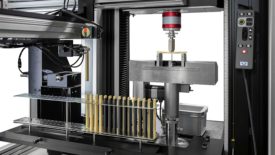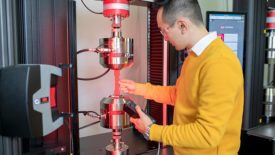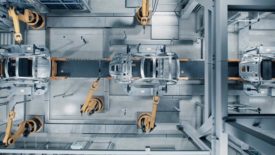Home » automation
Articles Tagged with ''automation''
Vision & Sensors | Collaborative Robots
Explore some of the benefits and capabilities of cobot-based quality inspection and metrology systems.
Read More
Vision & Sensors | Machine Vision 101
Automated Inspection 101: Benefits for Industry
Automated inspection can take many forms and show up in a wide variety of industries.
July 4, 2023
Vision & Sensors | LIghting
Machine Vision Lighting Powers Industrial Automation Advances
Learn how lighting can optimize multispectral imaging, collaborative robots, and deep leaning applications.
July 3, 2023
Management | Robotics
As Robotics Gain Hold, Here’s How to Manage Them
The pandemic has only fueled the worker shortage, prompting manufacturers to embrace automation in large numbers. Senior leadership can ensure robotics are implemented correctly.
June 1, 2023
Quality 101
Automation in Materials Testing
There are many different parts of a universal testing machine that can be partially or fully automated depending on the specific needs of your lab.
May 15, 2023
Quality 101
Automation’s Growing Role in Universal Testing
The pandemic proved just how important universal testers are to quality. As staff shorages endure, automation is keeping this technology on point.
May 10, 2023
Vision & Sensors | Deep Learning
Can Deep Learning Improve My Manufacturing Process?
By applying DL with a Data-Centric Approach, Users Can Streamline Even the Most Challenging Manufacturing Steps with Fast, Accurate Automated Inspection.
May 2, 2023
Quality in Automation | Quality 4.0
Time for Quality 4.0
Changes in industry are taking place now.
April 20, 2023
Quality in Automation | Industry 4.0
Connected Quality Is the Secret Sauce to the Fulfillment of Industry 4.0
Integrating QC and QA can mitigate product quality risk and empower smarter factories.
April 6, 2023
Stay in the know with Quality’s comprehensive coverage of
the manufacturing and metrology industries.
eNewsletter | Website | eMagazine
JOIN TODAY!Copyright ©2024. All Rights Reserved BNP Media.
Design, CMS, Hosting & Web Development :: ePublishing
